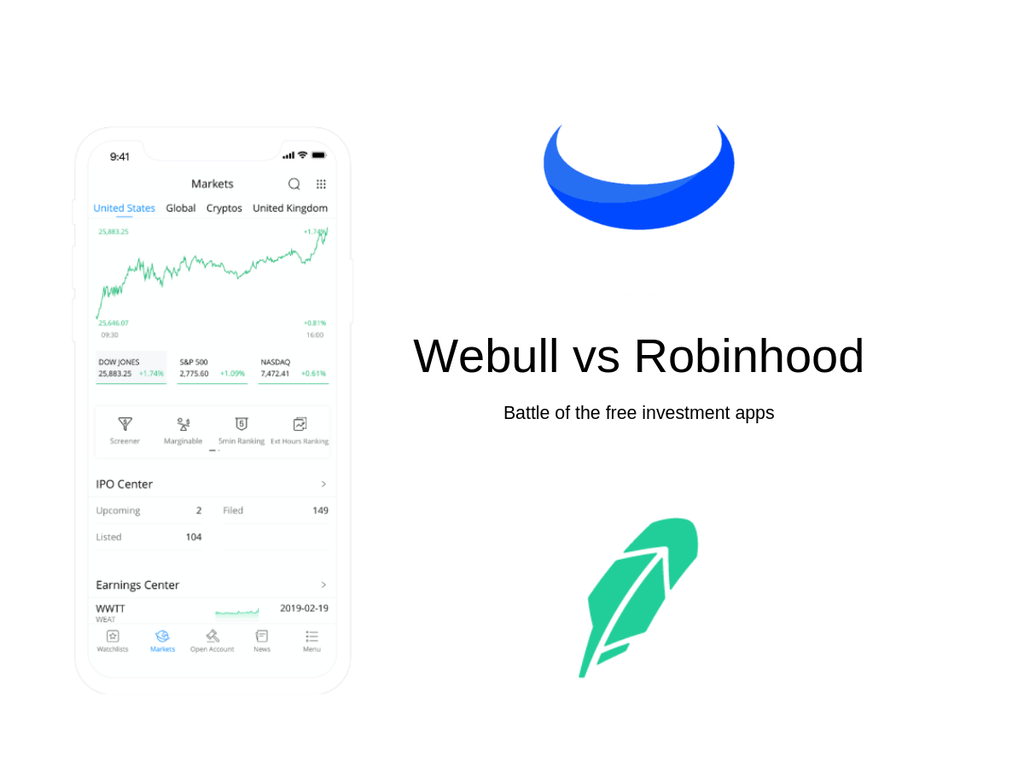As one might know, Webull and Robinhood are two equally eminent online stock trading platforms where users can invest and trade commission-free. While Webull identifies itself much more as a desktop market and leans more towards the more sophisticated investors. Robinhood simply emphasizes an app-based approach and leans more towards the ease for rookie investors. Webull vs Robinhood can be a subject of a great debate between people who love self-directed mobile investing apps.
Overview

Webull is a commission and minimum-free brokerage service that accents an immensely easy-to-use mobile application. The apps are chock full of pertinent information about all sorts of investments and markets, as well as IPOs (initial public offerings), dividends, popular exchange-traded funds (ETFs) and industries, cryptocurrencies, and many more.
Whereas, Robinhood keeps day trading as easy and simple as possible. There is no account minimum needed to start investing, and users can easily trade in stocks, ETFs, cryptocurrencies, etc. with no commission or trading fees. The interface of this app is easy to use as it emphasizes making the experience easier for first-timers.
Fees

Both of these applications promote themselves as being immensely free of fees and commissions. Both of these platforms depend on ‘bid-ask spread’ to a huge extent. The bid-ask spread is the difference between the highest price that a buyer is willing to pay for an asset and the lowest price that a seller is willing to accept. In simpler words, it is the difference between a stock’s buy price and its sale price.
If we look from the user’s perspective, there are mainly four types of fees included:
- Trading commissions: Trading commission is the percentage that the broker will charge you based on the value of each trade.
- Trading fees: Now, this one is different from the trading commissions. Any form of fee associated with each trade that you make.
- Inactivity fees: The fees that the broker charges for not trading. For instance, the broker can charge you for keeping money in your brokerage account.
- Non-trading/Other fees: Any form of fee that is charged for trading on this platform that isn’t covered in the aforementioned types. For instance, a brokerage might charge you for withdrawing money from your brokerage account or even depositing money in it.
Neither Robinhood nor Webull charges commissions or trading fees on a per-trade basis. Check out both the platforms and pick one that seems suitable as per your trading activities and the one that seems intuitively easy for your portfolio management.


